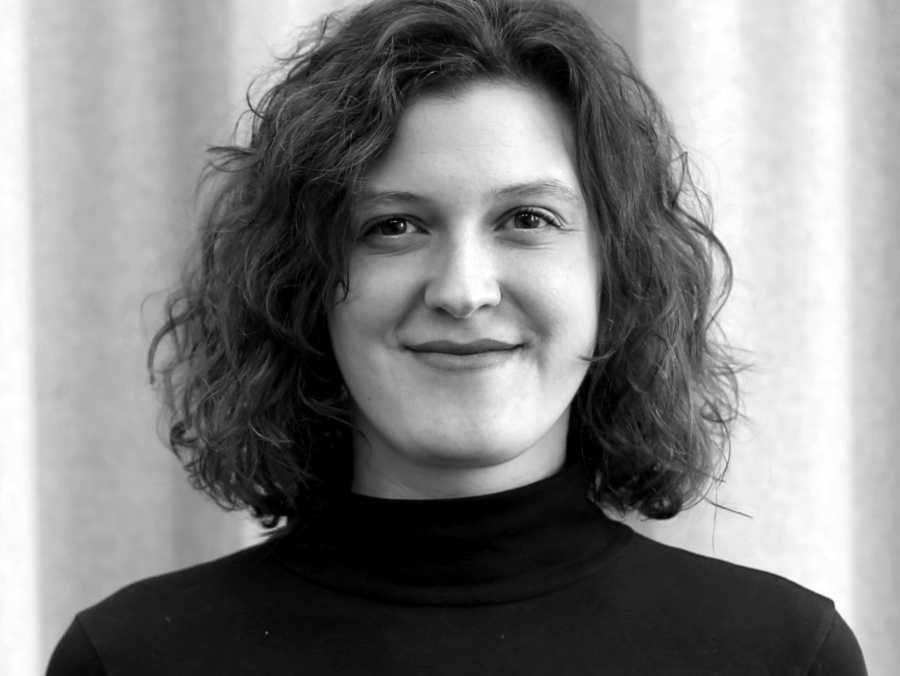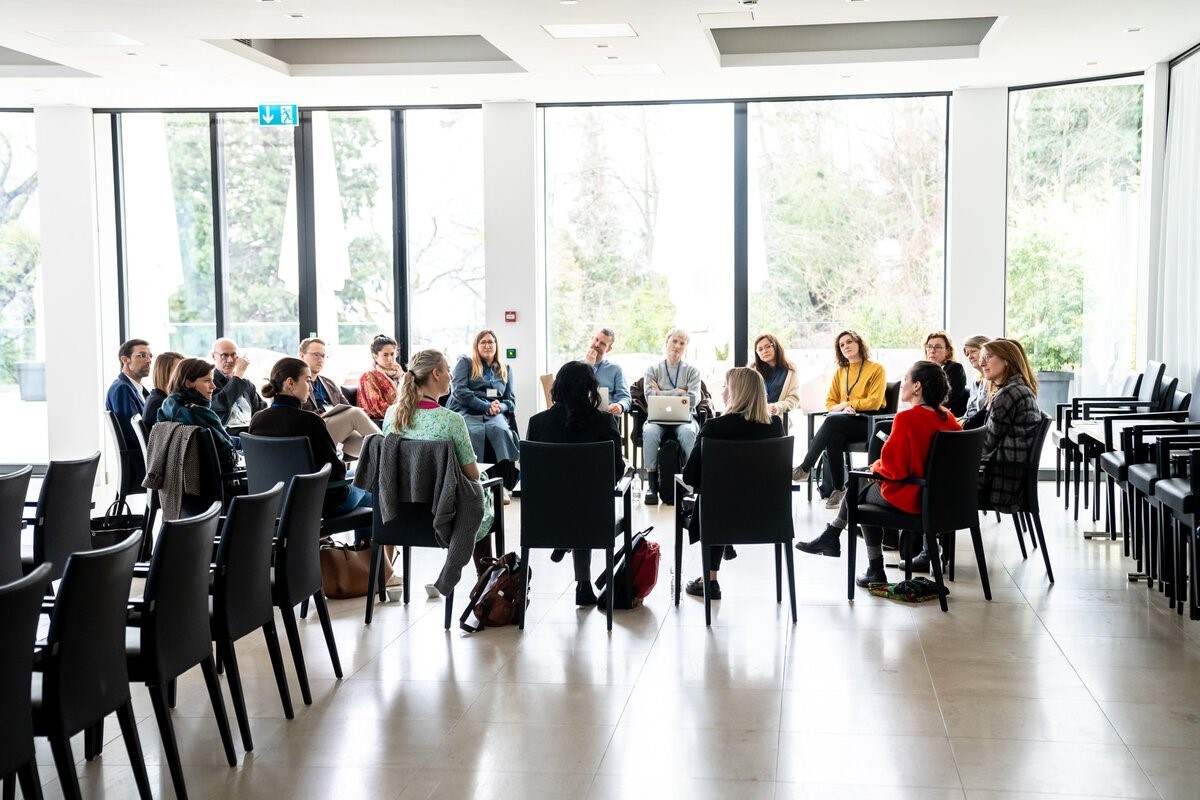INTERSECTIONS
Investigating Interdisciplinarity and Transdisciplinarity: Intersections of Practices, Culture(s) and Policy in Collaborative Knowledge Production (INTERSECTIONS)
Overview
Interdisciplinary and transdisciplinary research (IDR and TDR) – collaborative research spanning methods, approaches, disciplines, and societal spheres – are trapped in a paradox. On the one hand, IDR and TDR promise to catalyse societal transformation and tackle societal challenges. These approaches are therefore heavily promoted by universities, funders, and policymakers. On the other hand, IDR and TDR face a range of challenges on the institutional, organizational, collective, and individual level.
One way through this impasse is to understand the multiple intersections that exist between cultures (knowledge), practices (researchers), and policy (institutions) in IDR and TDR to improve their capacity to address scientific and societal challenges.
Within the rationale of knowledge cultures, the various ways a scientific community understands and organises knowledge production, interdisciplinarity and transdisciplinarity have been studied and theorised differently across different scientific communities. Commonly, they are considered to follow a logic of problem-solving, aiming at societal and scientific transformation in the face of complex problems. In practice, however, they differ in their philosophical assumptions as well as methods, values, and norms. At the intersection of research cultures and research practices, we analyse some phenomena of this variety with respect to their complexity and their boundary conditions.
The consolidation of the research on and the conceptual cultures of interdisciplinarity and transdisciplinarity is an important foundation for increasing the understanding of collaborative research practices and how they contribute to tackling societal challenges.1 Knowledge cultures and practices of IDR/TDR therefore intersect and mutually influence each other.
Within the project, our aim is to advance the methodological and conceptual approaches for investigating, practicing, and assessing IDR/TDR. This is to identify potentials of the integration of interdisciplinarity and transdisciplinarity into existing knowledge cultures and research practices, as well as their institutionalization in the larger scientific landscape.
In this intersection, collaborations within academia and interactions with other societal actor groups are relevant. The research practices guiding inter- and transdisciplinary collaborations are influenced by societal needs, values and norms as well as by policy responses in and outside of the institution, funding decisions and roadmaps, and organizational cooperation. Understanding interdisciplinary and transdisciplinary practices informs us about disconnections between the research and the environment it takes place in.
At the level of governance and assessment, this environment involves the science and technology policy realm, funding agencies, institutions and organizations, and related infrastructures. Several well-known obstacles can be better understood through an investigation into how research practices and policies intersect. For instance, one element are the temporal arrangements IDR and TDR operate in. Policymakers and funders favour fast-tracked time-efficient results, which is difficult to align with processes in IDR/TDR that often require more time to set up teams and collaborations, define problems and goals, and grapple with non-linear research processes. Further, values and norms that differ between policy and practice impact how IDR/TDR can be implemented. For example, funders value tangible outputs in the form of publications or patents, while researchers might put focus on intangible outcomes and impacts like newly established networks, improved processes, or building up community knowledge. Understanding such aspects of the intersection between practices and policy is a first step for the institutional environment (i.e. university, policy and funding) to be adapted and allow for higher quality IDR/TDR.
We aim to contribute to an improvement of the conditions for collaboration at the intersection of research practices and science policies by identifying potential disconnections that keep IDR/TDR from developing their full potential in addressing societal challenges.2
Many governing, funding and assessment structures show the need for an improved dialogue between research and policy. This is especially the case when it comes to TDR that aims to address societal or scientific problems asking for a reflection and exchange of not only diverse disciplines and research fields but also societal stakeholders. Investigating the intersection of knowledge cultures and policy helps to understand existing gaps, collaborative bottlenecks, or dialogical needs.
How organizational and institutional policies influence knowledge cultures in their practices, but also in their philosophical assumptions, methods, values, and norms, in turn, is crucial to understand when it comes to the intersection of policy and culture. Focusing on IDR and TDR demands methods as well as governance and assessment processes that are designed in a way to allow for epistemic diversity and boundary crossing in collaborative research and innovation.
We aim to identify and contribute to policy, assessment and funding instruments that can support such participatory processes to encourage knowledge cultures to tackle complex problems collaboratively and from diverse perspectives. For example, this involves investigating regulation and standardisation processes dominant in institutional and organisational settings, that might hinder or support knowledge cultures to successfully conduct IDR/TDR.
Approach and Methods
This project is situated in the intersection of different fields. We bring together concepts and tools from science and technology studies (STS), social anthropology, meta-research, philosophy, cultural studies as well as science and technology policy. This is represented by the methods employed and the questions studied. A critical approach is taken to consider the space, realisation, and integration of current IDR/TDR addressing scientific and societal challenges. This is achieved by problematising and defamiliarising existing preconceptions of interdisciplinarity and transdisciplinarity and enabling researchers, policy makers and funders alike to strengthen IDR/TDR in dominant institutionalization, governance, and assessment approaches.
In the first phase of the project, we conduct an extensive review of the academic and grey literature on interdisciplinarity and transdisciplinarity external page in the form of a meta-ethnography. This allows us to consolidate the theoretical approaches on interdisciplinarity and transdisciplinarity and lays the theoretical foundations for the empirical investigation. The complex search strings used to query Web of Science and Scopus, the consolidated database of academic literature; of grey literature; as well as external page of norms in IDR/TDR resulting from this review, are published as open-access datasets. Accompanying the literature review, we interview scholars who have studied or practiced interdisciplinarity and/or transdisciplinarity. These conversations deepen our understanding of knowledge cultures around IDR/TDR.
In the second phase, we conduct multi-sited ethnographic research in selected research centres in Switzerland conducting IDR/TDR. We also qualitatively study the schemes under which these centres are funded, especially their assessment structures, to understand their impact on collaboration in IDR/TDR in Switzerland.
The multi-sited ethnographic research consists of
- participant observation in the physical and virtual environments of the multiple sites of the research centres and related institutions
- semi-structured interviews and focus groups with researchers and staff of the centres, as well as individuals or groups representing governance, funding, and assessment
- document analysis of material provided by the centres or their funding institutions, concerning planning and reporting or related policies
- workshops to initiate dialogue on existing and co-creation of new resources for IDR/TDR practices
These explorations provide insight into collaborative research practices and relevant influencing factors on the levels of methods and transformation, values and assessment, as well as norms and governance.
The third phase of the project is dedicated to integrating and synthesising the project results. Consideration is also given to how IDR/TDR, funding and policy related with unknowns and ignored research topics. The identified intersections between research practices, knowledge cultures and policy build the basis to invent new methods and tools that support future efforts to study or conduct IDR and TDR. Further, results are shared, and tools are tested in workshops with policymakers, funders, researchers, practitioners and experts. These workshops have the dialogical goal of enabling exchange about necessary strategies and transformation in the practice, culture and policies surrounding IDR and TDR.
Workshop Series
In the light of the project’s goals, the research team will offer a series of six workshops in 2025 and 2026 to create a forum to discuss targeted topics and to share and interpret findings with and among relevant actors from academia, policy and practice. The series responds to the aim of strengthening the intersection between research and policy (WP3). This will be achieved by exploring and developing plural meanings, perspectives and visions of policy makers, funders, and researchers.
We chose the format of workshops for this stage of the INTERSECTIONS project as this allows the research team to implement dialogical and discursive ways of disseminating and interpreting results. As we aim to strengthen the intersection between IDR, TDR, policy and funding, we want to operate at and within these intersections and create a sustainable impact.
By opening a space for exchange and networking where we can present and discuss our results, the workshops enable us to create insights that can transform our results into specific and targeted opportunities for transformation in interactions between research, policy, and funding related to inter- and transdisciplinary research.
The results of the INTERSECTIONS workshops – such as shared interpretations, discussions, consensus or disagreements on the various critical topics, and tested collaborative tools – inform different deliverables and outputs of the INTERSECTIONS project. Complementary to the grounded theory approach guiding the data analysis of INTERSECTIONS, this allows to inform decision-making related to IDR/TDR policy and funding bottom-up:
- Outcomes of the INTERSECTIONS workshops will feed into a set of policy briefs on IDR/TDR and into related briefs for policy, funding or organisation efforts of IDR/TDR in Switzerland and Europe.
- Outcomes of workshops led by the doctoral candidates will be integrated in their dissertations and discussed and contextualised according to the doctoral projects’ topic, IDR/TDR assessment (Schaltegger) and IDR/TDR governance (Winiger).
- Conceptual tools designed in INTERSECTIONS that are tested in workshops will be published by the team or the respective doctoral project with the aim of strengthening IDR/TDR collaborations as well as their institutionalisation. They will be incorporated in online toolboxes to be used in Switzerland and internationally.
Outcome
By understanding the multiple intersections that exist between cultures, practices, and policy in ID/TD we aim for the following outcomes. A complete list of our outputs and publications can be accessed external page here.
- Enable the consolidation of a research program for investigating IDR/TDR by refining and expanding the theories and methods used for exploring interdisciplinary and transdisciplinary knowledge cultures.
- Enhance our understanding of the rapidly changing conditions for collaborative academic work in Switzerland.
- Contribute to policies for interdisciplinary and transdisciplinary research and education that are grounded in aggregated evidence from different fields.
- Contribute to current policy debates around the impacts of and funding of interdisciplinary and transdisciplinary research in Switzerland and beyond.
Interested in this project?
Check out our open Bachelor's and Master's thesis topics or read about ongoing doctoral and previous Master's theses below.
Doctoral Theses
Two doctoral students currently work in the INTERSECTIONS project:
Underlying values in collaborative research practices and their assessment– an empirical inquiry into resulting connections and disconnections
Doctoral candidate: Anne-Sophie Schaltegger
Timeframe: February 2022 – January 2026
Abstract: Inter- and transdisciplinary research are facing the paradox of being promoted for their transformative potential on the one hand, and facing a range of barriers on the other. One of those barriers is research assessment, which often does not account for the unique conditions and characteristics of inter- and transdisciplinary research. Assessments conducted by funders in the form of proposal evaluation and monitoring of running projects and their effects on inter- and transdisciplinary research practices are still poorly understood. Moreover, values play an important role in both research practices and research assessment, but again, empirical investigations into those values, their roles and how the values of research and its assessment relate to each other are scarce. Particularly, locally contextualised insights into the Swiss context are needed. My thesis will contribute to closing this gap by applying a qualitative, cultural approach based on grounded theory. The research questions guiding this study focus on the values involved in collaborative inter- and transdisciplinary research practices, the values involved in their assessment, as well as the intersections and disconnections between those two value landscapes. An initial literature review informs about the existing research on values in inter- and transdisciplinary research and its assessment. Via ethnographic research in relevant national research projects, values engaged in collaborative research practices in Switzerland will be investigated. These will be contrasted with a perspective on values engaged in related assessment situations through participant observation and semi-structured interviews and with individuals involved in and responsible for the assessment. A final synthesis including workshops for dissemination and discussion of findings with researchers, funders and experts in assessment panel will illuminate the intersections and disconnections between inter- and transdisciplinary research and its assessment, thus aiding in understanding how this intersection can be improved to foster these research mode’s potential from a perspective of values.
Doctoral Thesis: norms and governance in transdisciplinary research settings of emerging technologies
Doctoral candidate: Helena Winiger
Timeframe: September 2023 - August 2027
Abstract: The governance of technologies in society requires addressing complex problems rooted in technological advancement not only in the societal issues that follow, but also in their emergence. Inter- and transdisciplinary research is in high demand to address existing complex problems. Furthermore, the socio-technical innovation processes at the basis of existing and future problems are studied. But, despite existing policies, inter- and transdisciplinarity are not fully integrated into scientific practice. Besides, the societal governance of technologies is not yet responsive enough to address arising complex problems.
My doctoral project aims to study inter- and transdisciplinary research in domains involving emerging technologies. It focuses on the role of institutional norms and governance processes that are iterated in organizational practices and policies. A thorough understanding of such institutional norms aims to contribute to the co-production of participatory governance mechanisms for technology development and use by standardization or policy instruments. Furthermore, the outcome of this study will support an empirically grounded discussion and development of science policy and funding targeting inter- and transdisciplinary research related to emerging technologies in Switzerland and beyond.
In this study, qualitative methods are used. A literature review provides the position and framework of the study. It anchors the topic inter- and transdisciplinarily in the field of Science and Technology Studies. Interviews, focus groups, and multi-sited ethnographic research in Swiss research centers involving emerging technologies contribute empirically to the conceptual approach. Grounded theory guides the data analysis. Findings on institutional norms will feed into efforts towards participatory governance and responsible innovation, e.g., through tools to be applied in a transdisciplinary manner.
Masters Theses
The following master theses have been completed in the INTERSECTIONS project:
The Role of Emotions and Affection in Interdisciplinary Research
Master's student: Valeria Merlo
Timeframe: December 2023 - May 2024
Supervisor: PD Dr. Bianca Vienni-Baptista
Cultural Studies of Science and Technology
Transdisciplinarity Lab (D-USYS)
Co-Supervisor: Anne-Sophie Schaltegger, MSc
Cultural Studies of Science and Technology
Transdisciplinarity Lab (D-USYS)
Summary: Many of today’s societal problems, such as the loss of biodiversity due to intensified agriculture, are illdefined and have complex interrelationships. Addressing such problems requires interdisciplinary research (IDR), which involves collaboration across different fields. However, IDR faces significant challenges that impede its effectiveness. It is important to study these challenges in order to improve the conditions under which scientists conduct such research and to solve wicked societal problems.
This thesis investigates challenges related to emotional and affective dimensions in IDR. IDR involves high levels of collaboration and integration between different fields of knowledge, often requiring researchers to step out of their comfort zones and engage in discomfortable situations. This research aims to understand what scientists do to regulate their own emotional experience (emotional labour) and the emotional experience of others (affective labour) to navigate between comfort and discomfort. Furthermore, it investigates the interconnectedness between researchers' emotional and affective labour and their appraisal of collaborative situations on a comfort-discomfort continuum. Methodologically, this study is based on a comprehensive literature review as well as an ethnographic fieldwork. The ethnographic data was collected at the interdisciplinary research centre LIVES3 and includes participant observation, interviews as well as diary entries.
To contribute to the understanding of emotional and affective labour in the context of interdisciplinary research collaboration, this study firstly introduces a theoretical framework that explores the interconnectedness between emotional and affective labour and researchers’ appraisal of a situation. The proposed framework integrates the Learning Zone Model4 with the Process Model of Emotion Regulation5 as shown in Figure 1. Secondly, the framework is applied to analyse ethnographic field data. The findings of the ethnographic fieldwork show that researchers in interdisciplinary collaborations must navigate the comfort-discomfort continuum in three areas of (in)securities: disciplinary, career, and interpersonal (Figure 2). The strategies they used individually and collectively to navigate this continuum are summarized in Table 1. The findings illustrate how secure collective relationships support individuals in crossing disciplinary boundaries and emphasize the need for a non-judgmental mindset to create a collective environment for sharing different perspectives. Furthermore, they demonstrate how the employed strategies influenced the researchers’ appraisal of emotional experiences by helping them to contextualise and relativise these experiences, to observe and alter appraisal patterns, and to accept discomforting experiences as less detrimental to their well-being. Additionally, it is demonstrated how the concept of mindfulness proves as a valuable lens to understand how specific strategies for emotional regulation can alter the way how situations are appraised.



References
1 Vienni-Baptista, B. (2020). Investigating Interdisciplinarity and Transdisciplinarity: Intersections of Practices, Culture(s) and Policy in Collaborative Knowledge Production (INTERSECTIONS) [Grant Proposal]; Vienni-Baptista, B. (2024). Cultural studies of collaborative science and technology, in: Elgar Encyclopedia of Interdisciplinarity and Transdisciplinarity. Edward Elgar Publishing, pp. 139–143.
2 Vienni-Baptista, B. (2020). Investigating Interdisciplinarity and Transdisciplinarity: Intersections of Practices, Culture(s) and Policy in Collaborative Knowledge Production (INTERSECTIONS) [Grant Proposal].
3 external page https://www.centre-lives.ch/en
4 Senninger, T. (2000). Abenteuer leiten - in Abenteuern lernen Methodenset zur Planung und Leitung kooperativer Lerngemeinschaften für Training und Teamentwicklung in Schule, Jugendarbeit und Betrieb. Ökotopia Verlag.
5 Gross, J. J. (2013). Handbook of emotion regulation. Guilford publications.
Project core team
-

PD Dr Bianca Vienni-Baptista, group lead -

Anne-Sophie Schaltegger, doctoral candidate
-

Helena Winiger, doctoral candidate -

Funding

"Investigating interdisciplinarity and transdisciplinarity: intersections of practices, culture(s) and policy in collaborative knowledge production" (Intersections) is funded by the Swiss National Science Foundation (SNSF), external page Programme PRIMA, Grant No. 201582, period 2022–2026.
We thank the Swiss National Science Foundation for the funding and all research centers and institutions who offer their collaboration to enable this research.
